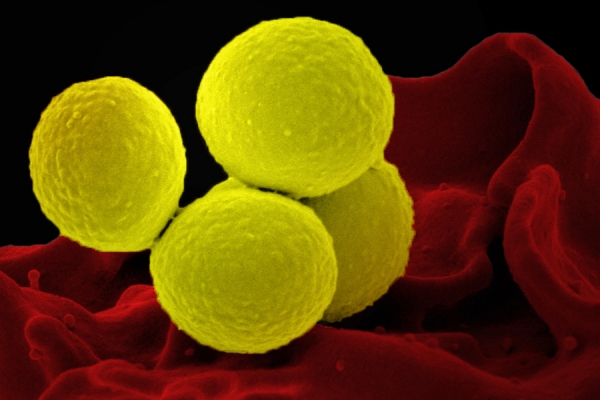Human skin is home to millions of microbes. One of these microbes, Staphylococcus aureus, is an opportunistic pathogen that can invade patches of skin affected by eczema, also known as atopic dermatitis.
In a new study, researchers at MIT and other institutions have discovered that this microbe can rapidly evolve within a single person’s microbiome. They found that in people with eczema, S. aureus tends to evolve to a variant with a mutation in a specific gene that helps it grow faster on the skin.
This study marks the first time that scientists have directly observed this kind of rapid evolution in a microbe associated with a complex skin disorder. The findings could also help researchers develop potential treatments that would soothe the symptoms of eczema by targeting variants of S. aureus that have this type of mutation and that tend to make eczema symptoms worse.
“This is the first study to show that Staph aureus genotypes are changing on people with atopic dermatitis,” says Tami Lieberman, an assistant professor of civil and environmental engineering and a member of MIT’s Institute for Medical Engineering and Science. “To my knowledge, this is the most direct evidence of adaptive evolution in the skin microbiome.”
Read more at Massachusetts Institute of Technology
Image: An SEM image showing four yellow-colored, spheroid shaped, Staphylococcus aureus bacteria. Credits: National Institute of Allergy and Infectious Diseases (NIAID)


